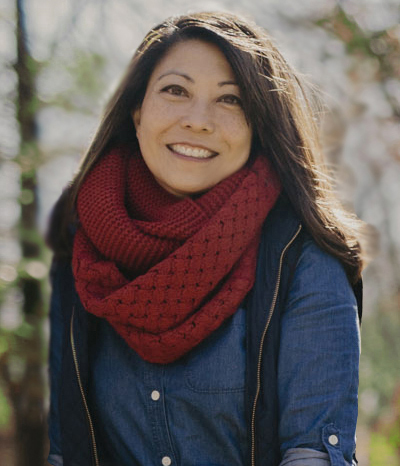Sustainability officer celebrates Earth Day, encourages community awareness
For the past 11 years, Marsha Garcia has served as the first sustainability officer at URI. Photo contributed by Marsha Garcia.
For the past 11 years, the University of Rhode Island’s sustainability officer has been working to create an environment where environmentalism is a part of daily life and decision-making on campus.
Marsha Garcia was the first person to ever hold the position of sustainability officer at the University. Before coming to URI, she worked for the American Institute of Architects. There, she managed programs related to green building in an effort to keep infrastructure as eco-friendly as possible during the building process and afterward. She has also worked for the U.S. Green Building Council and the National Wildlife Federation.
During her time at URI, Garcia has focused on facilitating sustainability projects in other departments as well as influencing them to make more eco-friendly choices.
“I’m not the one who buys recycled content paper for offices, and I’m not the one who makes the decisions on whether or not people can recycle at the University,” Garcia said. “It’s about having everybody else pitch in to do that and to make those decisions.”
While the term sustainability can be slightly unclear to some, Garcia sees it as more than a definition or an action.
“[Sustainability] is either abstract or it’s very specific, where people think it’s really just about polar bears and recycling,” she said. “It’s everything from waste reduction, plastic, disposable plastic reduction, food waste reduction and when it comes to transportation, reducing the number of cars that are on campus and the number of miles traveled.”
Garcia has focused on reaching out to and teaching students about major environmental issues and what they can do about them, even if they are not majoring in anything related to the environment. She believes that students from every major, not just environmental science majors, should know about sustainability.
The Community Service (CSV) course that she has been teaching was redesigned recently to focus on how outreach plays into sustainability. The course is CSV 306: Sustainability and Service Leadership at URI, and it should be open soon for students to enroll in for the fall.
“It’s things like working with our RAs in the residence halls to get the students to recycle properly, to encourage people to use RIPTA more, [to have] students understand why it’s important to drive less and take public transportation more and to highlight the new bike path on campus [which students should use for transportation if they can,]” Garcia said.
Another aspect of sustainability in food is reducing food waste and food-related emissions. Garcia has worked with Dining Services Director Pierre St-Germain to make dining more sustainable at the University.
This has included dining services buying more food locally, composting, using washable items in the dining halls before COVID-19 and ordering from a single vendor for the majority of dining products.
Because of these programs, dining services have been able to form good relationships with local farms on and around campus.
St-Germain also said that his years in foodservice have made him understand the importance of knowing where food comes from.
“Sustainability has lots of ways that it [intersects with] foodservice, and that’s something that I’ve been working on prior to my arrival here at URI, and I will continue to work on while I’m here,” St-Germain said.
Dining services often works with Garcia to ensure that dining is working sustainably and to come up with more ideas to improve its sustainability.
Garcia has created programs for students to get involved with sustainable thinking for Earth Day. One of these events will be a screening of Chasing Coral, a documentary about how coral reefs are vanishing at an alarming rate. It will be a live watch party featuring one of the producers, who will be providing live commentary and answering questions during the watch party on Earth Day.
Other programs that Garcia has been working on include creating a virtual newsletter and creating a green thinker certification program, where people can receive badges for different environmental-related challenges. She believes that programs like this help keep people engaged and involved in sustainability.
At the end of the day, Garcia likes to think of herself not as an officer, but as a guide who is trying to help people change their daily decisions to better support sustainability in their lives. During her time at URI, she has seen an increase in students’ opinions on sustainability and how they incorporate it into their lives.
“It’s more a part of daily decisions than it was [before,]” Garcia said. “I think initially, [sustainability] was a new thing to do, or something that was what a lot of people thought was the cool thing to do, or a trendy thing or just something to stand out. But over the years that I’ve been here, there has really been a culture shift where it’s just what we do.”

